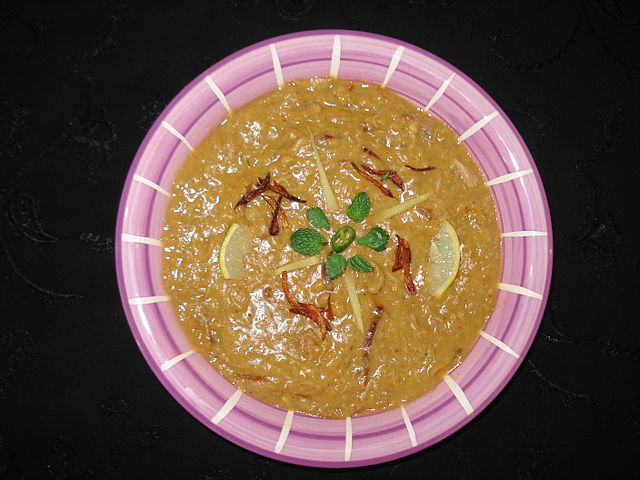11 Iconic foods of #Hyderabad, and what they mean. An etymology thread.
1. Biryani: Derives from Persian BIRIAN, meaning “fried before cooking.” So named because the rice is fried in ghee before being cooked with water, spices and ingredients to prevent it from clumping.
1. Biryani: Derives from Persian BIRIAN, meaning “fried before cooking.” So named because the rice is fried in ghee before being cooked with water, spices and ingredients to prevent it from clumping.

2. Haleem: Literally means “patience” in Persian as the slow-cooking process lasting for hours takes immense effort and patience. 

3. Pathar-ka-Gosht: Means “meat on stone” in Urdu as the procedure involves cooking marinated meat on a block of a granite slab. 

It’s said the bawarchis (chefs) of the Sixth Nizam Mir Mahboob Ali Khan came up with the invention when the Nizam wanted to have kebabs on a hunting trip (the chefs were not carrying the skewers, obviously)
4. Murgh do Pyaza: Literally “chicken with two onion” as the dish is made with double the quantity of onion, or onion is added twice to the gravy during the preparation. 

6. Paya: Literally “feet” in Urdu as this soup is predominantly made from leg bones and hooves of goat or sheep. 

7. Double-ka-Meetha: In local dialect, milk bread is often called “do roti” or “double roti” as it swells up to almost double its original size after baking. In this delicacy too, the slices swell up after they are soaked in the condensed milk with spices. 

This delicacy is also known as Shahi Tukda, meaning a “royal piece” because of its taste.
9. Dum Ke Roat: This cookie, widely available during the month of Muharram, is named after its style of preparation “dum,” which doesn’t allow pressure to go out while cooking. 

10. Osmania Biscuit: Said to be invented by a group of dieticians to provide energy supplement to patients at the Osmania Hospital. 

According to another version, it was invented when the Seventh Nizam Mir Osman Ali Khan wanted a snack that would balance sweet with the right amount of saltiness.
11. Irani Chai: Takes its name from the Persian (Iranian) immigrants who came in search of better prospects and established cafes selling the iconic beverage. 

Thank you. Hope you enjoyed reading this.
(Image Courtesy: Wikimedia Commons, on-demand food delivery sites, and the respective owners on other media)
(Image Courtesy: Wikimedia Commons, on-demand food delivery sites, and the respective owners on other media)
• • •
Missing some Tweet in this thread? You can try to
force a refresh
























